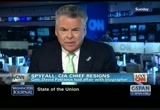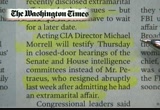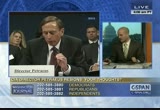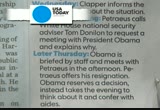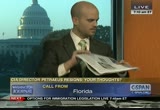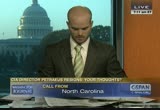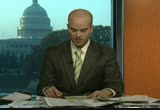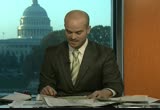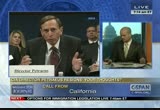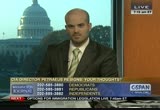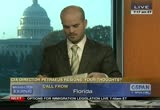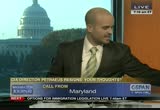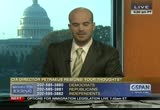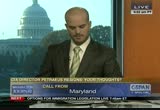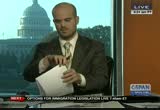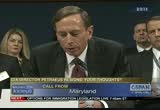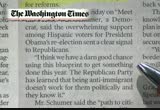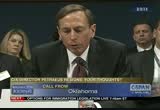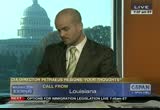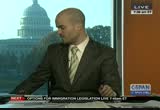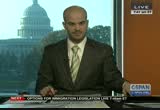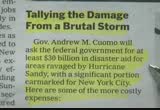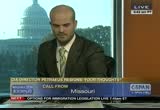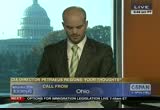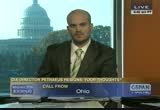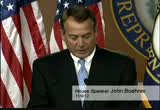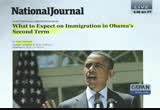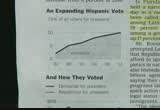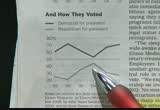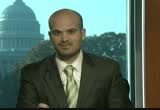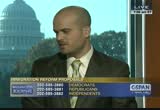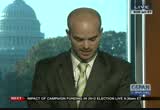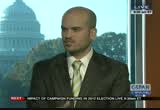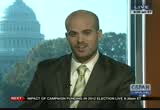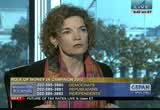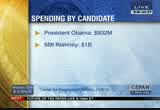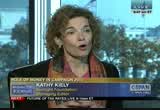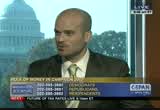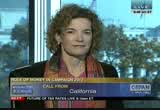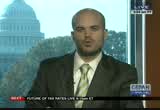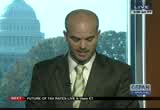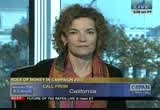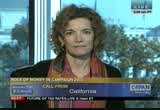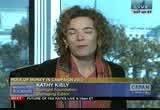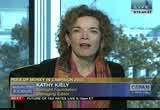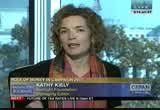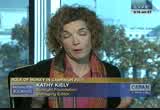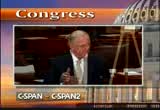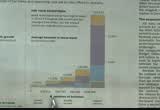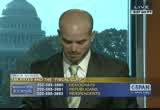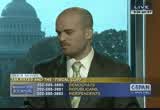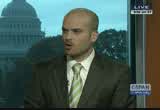tv Washington Journal CSPAN November 12, 2012 7:00am-10:00am EST
7:00 am
for the joint committee on taxation and now a partner for price waterhouse coopers, about the white house and s on the taxl effort kick cuts ♪ host: good morning, it is monday, november 12, 2012. the house and senate are out today in observance of veterans day. they're set to return tomorrow for the start of a lame duck session. meanwhile, fallout continues over the resignation of the cia director, david petraeus, that is where we want to begin with you this morning. we want to hear your thoughts on the abrupt departure of america's top spy and when
7:01 am
congress should have been informed of the probe on the cia director. give us a call -- host: you can also catch up with us on all of your favorite social media sites, twitter, facebook, an e-mail. a very good morning to you. we want to take you right to the story that is leading the major papers this morning, the resignation and fallout over the cia director, david petraeus. the timeline shows that the fbi discovered the affair in summer. high-level officials and the justice department were notified in late summer that fbi agents had uncovered what appeared to be an extramarital affair
7:02 am
7:03 am
host: another story from "the washington post" this morning. the headline, "probe of the petraeus investigation." we want to take you to one of those lawmakers now, congressman peter king, he was on "state of the union" this week, expressing concerns over when the fbi, the white house, and members of congress knew about the investigation. [video clip] >> i have questions about the whole matter. how to the fbi have been investigating it for this long? and if the general was involved , to me, if it was, the fbi director had the obligation to tell the head of the council at the earliest date. seems to have been going on for several months, but now it seems
7:04 am
the fbi did not realize it until election day? it just does not add up, you have this kind of investigation, the fbi investigating e-mails, taking four months to find out that the cia director was involved? i have real questions about this. the time line has to be analyzed to see what happened. >> it looks like general petraeus will not be testifying this week at the hearings that we talked about on the september 11 incident in benghazi. here is the headline -- "lawmakers have questions." pu
7:05 am
7:06 am
host: like i said, we are getting your thoughts this morning. we will go now to ryan, from houston, texas. good morning. caller: good morning, i am really disappointed in general petraeus. the discipline of mines are being taken in by people writing books, which is a travesty for america. too many people in america are involved in infidelity. we tell young people about discipline and the way to do things right, so i think it is a shame. i have a brother who is an airborne rancher and he is not in the army no more. he is still the -- still disciplined. this is a travesty, man.
7:07 am
7:09 am
host: members of congress are still coming to grips with this decision, some of whom appeared on the sunday talk shows. i want to take you to diane feinstein, from the senate intelligence committee, on "fox news sunday." [video clip] >> we had no advance notice. it was like a lightning bolt. i came back to washington on thursday night. friday morning the staff director told me that there were a number of calls in the press
7:10 am
about this. i called david petraeus. as a matter of fact, i had an appointment with him at 3:00 that afternoon. it was canceled. when these questions came up, obviously at took the action myself to try to find out. and then i informed my vice- chairman and i talked to the director twice. this is very hard stuff. host: we are getting your thoughts on the fallout from that announcement. billy, lady lake, florida. caller: good morning. it is a real mixed bag of feelings about things like this. this guy is the head of the cia , and it took us months to find this out? i was trained as a military
7:11 am
combat medic, vietnam, and i am gay. i worked in the surgery street of the recovery unit. two investigators remove me from that unit. each of them had a hand on my shoulder, one on my arm, parading me out of the hospital because they suspected i was gay. when it comes to things like this, i am sorry the gentleman has had problems, but the government never surprises me. host: thank you for the call from florida this morning. we also want to take you to anita, chapel hill, north carolina. caller: i was listening to your caller before may, he is absolutely right. i am muslim, very strict about things, and i think that people have a right to not practice religion here. they have a right to do things
7:12 am
the way they feel comfortable doing it, which is called secular or religious thinking. they have the right in this country not to follow religious law. for him to feel that he needed to resign over a scandal, i do not think that is proper when he does not have to follow religious thinking about sex in this country. host: thank you for the call this morning. here is the editorial from "usa today."
7:14 am
host: in, want to get your thoughts this morning on the democratic line. -- diane, want to get your thoughts this morning on the democratic line. caller: i went to school with one of my friends in coronado, california. wondering if you are related to anyone from connecticut. host: not sure. what are your thoughts about the general's resignation? caller: let me tell you something, we came here when i was a, we came to a military base. my stepfather served in the first marines. also we went to camp pendleton and he was the commander of that unit for many years. at the veterans day to our veterans. living and deceased. and active, i should say.
7:15 am
about the general, were we all wearing rose colored glasses? i am sure some of his closest friends for making comments or had some kind of reservation about what was happening. the two of them together look very happy in conversation. i imagine that they had many, many other clandestine, you know, appearances together. the thing is, the thing that is hurtful is for the family. and, of course, the military and the government, there are a lot of answers. he will be held to a higher accounting. he has to bring it out. the pentagon will do that as well. the cia, the fbi, the president, all making sure that this is not
7:16 am
swept under the carpet here. john, i do not know. when i saw him, these men are away for a long time. my stepfather was in the military. my first husband had a silver star in vietnam. i know what it is like for men and women to be separated. i feel sorry for holly and her family, but at the same time these men, they are not robots. host: diane, thank you for the call this morning. here is the editorial from "the wall street journal." it notes that "if the leaks are correct, the fbi was investigating him for months."
7:17 am
7:18 am
we're all human and we all make errors. most politicians would not do that. that being said, i would like to make a comment about this benghazi thing. republicans have made such a big deal out of it. ronald reagan sent over 200 marines to their death and there was no public outrage. where is the republican outrage? only because of obama do we get this kind of reaction. thank you. host: edward, from miami, florida, this morning. another editorial, from being west, former infantryman.
7:19 am
7:20 am
her a threat in e-mails? host: do you think the senate needs to hold a hearing on this? caller: absolutely. i look forward to his testimony under oath this time, rather than giving the cock and bull story from before. it is all because of the video tape. now he cannot be blackmailed by anyone. host: joe kelly is described as a 37-year-old social liaison at the air force base in tampa. host: did he have an affair with her? is that when he was so upset? -- caller: did he have an affair with her? is that why he was so upset? host: do you think that these questions need to be answered by congress? caller: i have no idea. i think the whole thing should be investigated.
7:21 am
7:22 am
host: we go to ben, rock fell, maryland. caller: good morning. i agree with "usa today." this man, more than anyone else, is supposed to control the role of information. if it had been the transportation secretary, the only question would have been if he to his own car or if they took public transportation. but if you cannot control the flow of personal information
7:23 am
about your own life when you are the country's top spy, it raises a legitimate question. security breach or not. it is a problem. host: thank you for the call. a few other stories in the news today, front page of "the washington post." "some see an opening for real progress to talk about the looming fiscal cliff." host: for was happening this week, we are turning to steve sloan. tell us about the time line this week. caller: the president begins with a series of meetings with corporate leaders over the next few days to reestablish his relationship with the business community after his election. it all culminates on friday with
7:24 am
a meeting with congressional leaders to discuss how to move forward on the fiscal cliff. host: what has each side said moving into the negotiations? i know that there was a white house address west we from president obama. caller: the president continued to push for revenue of, saying it was vital to be part of a balanced solution. notably, he said nothing about raising tax rates. many people are taking this to assume that he is open to that revenue by closing loopholes as opposed to raising tax rates. on capitol hill, most republican leaders, including john boehner, have shifted in recent days, and they are talking more about
7:25 am
their openness, much more so than they were before the election. they are saying that they are open to revenue, but only in the formal closing loopholes, not raising rates. host: the front page of "politico," you can check that out. stephen sloan, what is the likelihood that both sides agreed to a short-term deal or a long-term deal in the last 50 days of the lame-duck session? host: -- caller: people want a deal, but the question is if both sides can take the pain that it will take to get to the deal. i am not sure that either side is willing to take that kind of pain. you could still go over the cliff. host: anything else on the
7:26 am
agenda this week, as negotiations kickoff? caller: tomorrow night this will be the first time that lawmakers are on capitol hill since september. basically, lawmakers will be talking amongst themselves about negotiations with the white house. host: stephen sloan, thank you so much for joining us this morning. caller: thank you. host: we're going now to tom, from columbus, ohio. we're discussing the resignation of general david petraeus. your thoughts? caller: i have a couple of questions. the first, i have read where the house, eric cantor knew something about this relationships fairly early on.
7:27 am
is there any reason this was not used as material for the republicans to win the election? host: you think that it was a legitimate campaign issue, going back to the timeline of events from "usa today"? going back to the time line -- general petraeus spoke to the source on the same day, that is the time line that was laid out. caller: i think it would have been a credible campaign event. it is just curious, with all the mudslinging of a presidential election, that someone did not take ball and run with it, i guess. i am curious as to why someone,
7:28 am
even some low-level, did not try to test the waters and push this into the media to find out if there could be a bite in the last week or two before the election. host: thank you for the call, from ohio this morning. the woman who has been in -- implicated with general petraeus is called o paula broadwell. she appeared on "booktv,"where she talked about her book about the general. here are some comments from her appearance. [video clip] >> in 2006 he was the commander at fort leavenworth. he was overseeing the riding of the counterinsurgency manual. he liked to pay attention to detail. he came to harvard university and wanted to speak to students
7:29 am
about the merits of counterinsurgency and that approach to fighting the iraq war, which we're losing at the time. he invited a group of veterans, young students, soldiers dollars, if you well, to meet with the larger student body. i went up to him and said i was writing my thesis on negotiating with terrorists and i said i thought it could help his team win. he was kind enough to indulge me and give me his business card, as he does with many young soldiers dollars. he is very open-minded about taking ideas from everyone and everyone -- anyone and everyone, reaching out to those in different sectors and fields together. we kept in touch over e-mail for a couple of years. i was still a graduate student. two years later i reached out to him and asked if he would speak to a group of students at harvard who were trying to find ways to galvanize greater cooperation between the
7:30 am
intelligence community and other national security organizations that we, as mid great field officers, were frustrated in not seeing a lack of cooperation. he agreed to do a video teleconference from baghdad. he opened his presentation with a quote from his officers, that luck is what happens when preparation meets opportunity. i feel that that has been an example in his life and it is my experience of this book, capturing the feeling of how i got this opportunity to write the book. host: if you more comments from twitter this morning on the resignation of general petraeus. coastal's one more comment from twitter this morning -- -- host: one more comment from twitter this morning.
7:31 am
host: we are headed out to diamond, missouri, republican line. robert, good morning. caller: good morning, this is robert gillespie. i am retired navy. went in in 51, came out in 71. i have a comment i want to make of the general petraeus. i know that he is a good man, but when this woman was pumping him for information, it should be looked into very much. we do not know if that woman that was pumping the general is not relating that stuff to whoever. being a military man, i would like to see this looked into very much. host: robert, diamond, missouri, thank you very much. mary, democratic line.
7:32 am
caller: i have been in the military for 18 years and i understand that it is a security risk, she has had no background check. but what i really wanted to say is that the reason he needs to step down is being in the service for 18 years, 19 years, i have seen my counterparts discharged dishonorably for cheating on their wives, having extramarital affairs, even being gay. but that just goes to show that the rules on the books are anxious. you will lose credible people, just like credible service members, for being gay. we will lose this man because the rules on the books are from -- they're just sanction. his ability to do his job and what he does in his personal
7:33 am
life, that is just his personal life and he and his wife should work that out. it is unfortunate that the country -- i do not agree with what he has done, but it is unfortunate that we would lose the skills of this man. to the left and right, everyone else is doing it, but they are not getting caught. host: a few more comments from facebook this morning. host: yesterday was veterans day, the president was at arlington national ceremony
7:34 am
yesterday -- arlington national cemetery yesterday to pay tribute. this is the first president's day since the last u.s. troops left in 2007. we want to take you to some of the president's remarks. host: no veteran should have to wait for months and years for the benefits that have earned. we will not let up on the claims backlog. [applause] as we mark the 50th anniversary of the vietnam war, we have secured new disability better -- disability benefits for veterans exposed to agent orange. we needed it, we fought for it, we got it done. [applause] that is what we do in america. we take care of our own. we take care of our veterans. we take care of your families.
7:35 am
not just by saluting you on one day, once per year, but by fighting for you and your families every day of every year. that is our obligation. a sacred obligation to all of you. host: other news from yesterday, from the sunday shows, several appearances from members of the senate. here is the story from "the washington times." "two senators signed a need for immigration reform."
7:36 am
host: we will be discussing that immigration issue in the next segment of the "washington journal" this morning. but for the next 10 minutes we are continuing to get your thoughts on the resignation of general petraeus. gilbert, thank you for calling. caller: good morning. i cannot believe how naive the american public is. general petraeus has not done anything more or less than 95% of all military personnel, women and men. let me say this, why do you think they have so many followers? that is from the beginning of time.
7:37 am
host: you are saying that 95% of military people cheat? caller: i am a veteran. you should see them leaving the post on the weekend and going into town. host: you are getting that information from somewhere? caller: i am telling you what i have seen. host: natalie, orleans, louisiana. thank you for calling. caller: one of the problems we're facing is that there are no standards for anyone in terms of conduct. the lack of standards is something that is being given to our children and to young people. we are surprised and stunned that the cheating tell lies, and manipulation. all of this is the result of the fact that we have had absolutely no standards for any public officials or any person in a
7:38 am
place of power. thank you. host: and want to point out this story from cbs news. -- i want to point out this story from cbs news. "jesse jackson jr. has not yet pleaded guilty to the legend misuse of campaign funds, but cbs chicago reports that the congressman's lawyer and criminal defense attorney is negotiating with several governments a plea deal that will likely be reached by the end of the year. now i want to go to cathy, from st. petersburg, florida, on the subject of the resignation of
7:39 am
general petraeus. cathy is on the democratic line this morning. caller: i cannot believe his react -- cannot believe this reaction. he is not just a regular soldier having a fling, he is the head of the cia. this woman, broadwell, ok, she is a harvard graduate, west point graduate. he was very impressed with her, sleeping with her, god knows what he told her. she sent his e-mail, his click to another woman. ok, she has the judgment and is repulse of now. does this not make you wonder, what the heck? host: what do you think this does to the generals legacy after his work in afghanistan and iraq? did we lose you? all right, we will go to lisa, then, from arizona, on the
7:40 am
republican line. go ahead. caller: i wanted to say that the exposure of the whole affair, to me, if you're going to hold people to a standard for having an affair, what about president clinton? was he held accountable? it did he resign from office for his affair? no, he did not. caller: can i ask you the same question? what does this do to a legacy of the general? host: -- caller: if his integrity is in question, why are we not getting rid of every person with an extramarital affair bell or holding them to the same level of integrity? host: thank you for the call this morning, lisa. another story from another member of congress, "persistence
7:41 am
7:42 am
good morning. caller: i am disgusted. when is america going to grow up? the general has a girlfriend? so what. you want those statistics? 60% of all married men have had an affair during their marriage. so what? caller: -- host: where do you get that information from? caller: i just googled it. i turned away from the page, so i cannot give you the specifics. roosevelt had a girlfriend. eisenhower had a girlfriend. grow up. you know where i am coming from. thank you. host: from new jersey, one of several states still dealing with fallout from hurricane sandy. new york is another. here is the story from "the new york times." telling the damage from a brutal storm, the governor will be asking the federal governor --
7:43 am
government for $30 billion in disaster aid for areas ravaged by hurricane sandy. here are some of the more costly expenses. host: that is a picture of governor cuomo with members of the new york fire department special operations, still dealing with clean up and recovery efforts in new york. from go now to barbara, missouri. did i get the name right there, barbara? caller: it is [unintelligible] host: sorry about that. caller: my comment is more about the investigation itself. who authorized this?
7:44 am
sounds like this woman had her friend, an fbi agent, start reading e-mails. the other thing that sounded strange to me about it was that these fbi agents spoke directly to eric cantor in the house. is there not something like a chain of command? where fbi agents who are at superiors would have gone to their superiors? sounds like kind of an excuse to get into his e-mails. i still think it is all about benghazi. thank you. host: one more call on this, kathy is waiting in columbus, ohio, to talk about the fallout from the resignation of the cia director. cathy, thank you for calling this morning. caller: hello. this is my first time. my focus is not on the scandal at all, and i am disturbed that people are focusing on that,
7:45 am
though it is a tragedy for the general and his family. but given the far -- magnitude, i find the timing curious. general petraeus, having resigned, is a free agent, so to speak, without a boss or a higher up to answer to. he, in fact, resigned. he outdid himself with regards to the affair, which i found extremely interesting. he did that all on his own regarding the scandal. in short, if anyone wanted to hold an affair over his head or use it to leverage anything, given that he was going to be testifying in a few days, they would be holding an empty bag right now. i think that the timing on this is interesting.
7:46 am
the general may very well have had a bigger reason to resign and out himself. host: thank you so much for the call this morning. that will do it for this first segment of "washington journal." next we will look at potential areas of compromise for congress and we will look into the enormous role that money played in a campaign 2012 with our guest, from the sunlight foundation. we will be right back. ♪ [video clip] >> 2013 should be the year that we begin to resolve our debt
7:47 am
through tax reform and the entire region entitlement reform. i suggest we move through the fiscal cliff together, that this the year that our government comes to grips with the problems facing us. >> i am open to compromise, open to new ideas, committed to solving our fiscal challenges, but i refuse to accept any approach that is not balance. i will not be asking students, seniors, and middle-class families to pay down the entire deficit but people like me, asked -- being paid $250,000, are not asked to pay one dime more in congress -- in taxes. >> work is expected on the impending fiscal cliff in this typically referred to as lame duck session, with planned cut to domestic and military spending, also known as
7:48 am
sequestration. follow all of the debates and tuesday, with live house coverage. >> c-span invites middle school students and high school students to send a message to the president in a short video. let the president know the most important issue heat should consider in 2013. the grand prize is $5,000. the competition is open to students grades 6 through 12. for complete details and rules, go online to studentcam.org. >> "washington journal" continues. host: national journal correspondent, fawn johnson, joining us now for a conversation about immigration reform in the wake of campaign 2012. we are coming off an election that did nothing to change who controls the senate, the white
7:49 am
house. the house. but you said on the passing of legalization for undocumented immigrants, barack obama got as close to a mandate as he could possibly get? explain that for us. guest: the best rate start is if you just look at the hispanic vote in the election. -- the best way to start is to look at the hispanic vote in the election. some of the people who have been studying the hispanic vote more closely say that the account that we have is too low, that it was actually 75% voting for barack obama. prominent columnist, george will, a conservative, said in his column after the election that he was surprised that 30% of hispanics voted for mitt romney, because of how he
7:50 am
portrayed immigrants. so, we get back. then we have the interview that barack obama gave right before the election, where he said that immigration was essentially his top priority after they saw the budget crisis. host: we can read a little bit of that as well. guest: i was shocked when i saw it. it was amusing, because first it was off the record, then it was on the record. if this is your top priority? health care was his top priority in his first term and you saw how you stack up. i covered the immigration bill going to the senate in 2006- 2007, and it was bigger than i could have ever imagined. it turned into this massive conversation that was emotional and complicated. i thought, wow, that is a big issue. host: what barack obama said in
7:51 am
that off the record phone call was that the second thing he was confident would get done next year was immigration reform and that he would be very blunt -- "the big reason i will win a second term is because the republican party has so alienated the fastest-growing demographic group in the country, the latino community. i am fairly confident that they will have a great interest in getting that done, and i want to get it done because it is the right thing to do and i have cared about this since i ran in 2008." guest: that is the strong statement i have ever seen him say on immigration ever. -- strongest statement i have ever seen him say and immigration, ever. host: as you said, president obama got about 71% of the vote. you can actually see a chart here, tracking the latino vote over the years. this was the 2012 election, down
7:52 am
from the peak that republicans got, a little over 40% in 2004, when george w. bush was running for reelection. guest: president obama set this up to be an issue that people would vote on before the election. i cannot help but think that was a deliberate choice. the hispanic population, in fairness to the president, a lot of this has come from opposition with republicans. i found it a lot more interesting to look at what prominent republicans have been saying about this since the election. john boehner said, a couple of days after the election, that it was time to work on this reform. this got his caucus irritated. host: let's show the folks some
7:53 am
of what he said in that statement. >> >> -- [video clip] >> i am not talking about a seven page bill. i am talking about a comprehensive approach to fixing the borders and a broken immigration system. again, on an issue this big, the president has to leave. i think members on both sides of the aisle want to resolve this issue. host: you said that his caucus was surprised by this statement? guest: from louisiana they put out a statement saying that he was upset about many of the things that boehner said, not just immigration, but conversations on the debt in the next couple of weeks. this problem has been in the house since long before the tea party showed up. the rank-and-file get a little bit nervous, understandably.
7:54 am
i think that some of them could possibly lose elections, if they are forced to vote on something as controversial as a path to citizenship. i thought it was interesting, there have been some conservative pundits over the last couple of days, sean hanafi being one of them, as well as charles krug hammer, who used the word amnesty, saying that we need to do this. what you're starting to see as republicans trying to crack open the conversation within their party a little bit. they closed it shut very tightly in 2007, when the bill died. for reasons, they got a lot of low back. you're seeing, from tenants who might have some sway, they are talking about it in ways they may not have in the past. i think that the conversation will be very interesting.
7:55 am
i do not know that we will actually see results, because all the issues they disagree on in 2006 and 2007 are still there. host: again, we are talking with fawn johnson from "the national journal." if you have comments on how this issue will play out in the next months and years going forward, give us a call. the phone numbers are there on the screen for you to call in. fawn johnson, talk a little bit about what those paths are that are on the table. caller: -- guest: it is all more or less the same concept. the idea is that you take the 12 million or so illegal immigrants who live here now, essentially the ones who are not criminals, let's say that, they are supposed to pay fines and come
7:56 am
up with other qualifying criteria, like the need to show that they do not have a criminal background. fill in the list. and then they are supposed to get in line. the line, at least, it could take them 10 years to become citizens, but the idea is that you have new leases that you give these people and it would give them legal status, they would no longer be able to be deported. and they could also start paying taxes. if i am an employer and i want to hire this person to pick my fruit, common areas where you would see undocumented immigrants, we could do it above board, on the books, and it would help the treasury. and then they just wait for a certain amount of time and perhaps put in an application for a green card.
7:57 am
host: a comment on twitter from vivian, saying to secure the borders, do they mean like the berlin wall? guest: it is less interesting than it needs to be. there are in the region and lot of smart people at homeland security and this is a pretty but partisan issue. we are not talking about the berlin wall. i love the picture of the truck that is going over the border. [laughter] janet napolitano has a great " that she says often, as soon as you build a fence, they will find a ladder that is 1 foot higher. but there are very high tech ways to secure the border. i have been there, it is very impressive. in some ways it looks like a
7:58 am
military operation. they have a see-through hall, where you can see what is going on. a lot of it is about crime, not so much about trafficking people. the progress that the united states has made on the southern border since about 2000, it has been really incredible. there are a couple of spots on the southern border that are problems that we know about. there are other problems, like in arizona. it is almost like a steel trap. there is no getting through. you can say that the border is pretty secure. something that janet napolitano has said for the last couple of years. not everyone is one to believe that, but it works fine. host: camp hill, pa., republican
7:59 am
line. caller: good morning. thank you. please let me make my points. i believe that charity begins at home. our kids are getting out of high school and college and cannot find jobs, competing with these dream kids if the dream that goes through. and it is not fair for people who have been waiting for years to come to this country. it would be unfair to send these kids back because they do not speak the language? what about when they came here, it did not stop their parents? when we have governors, like rick perry, who has a policy of helping the children of illegal immigrants getting into colleges, with senators like marco rubio, who have their own versions of the dream act, and
8:00 am
denver college offering tuition to illegal immigrants, we have basically educated these kids for free. it is time for them to go back to their native countries and help that country make a better life for itself. host: fawn guest: i could not have said that better in terms of problems. all the arguments and the reasons why this is such a tough issue. there is a lot of conversation about whether or not immigrants would take jobs from americans. that is a more complicated question then either side is engaged it. a lot of the jobs undocumented immigrants are now are probably jobs that you and i would not want to take.
8:01 am
you could argue -- lamar smith says this all the time. we'll hear this a lot in the next coming months. host: the caller brought up rick perry. will it be the folks on capitol hill? guest: i think rick perry is out of the conversation because he got lambaste the. " rubio in the senate is a key person to watch -- marco rubio in the senate. he is concerned about the tone republicans have taken. he has put forward a couple of ideas to fix immigration, where
8:02 am
the kids would not be deported. it is interesting to watch rubio. there is the hispanic caucus of folks that would like to see like a legalization program and then other republicans like the caller who think it is not ha fair. lindsey graham -- he and senator chuck schumer have an outline for several years that they will be revising. lindsay grant is pushing a broad bill -- lindsay gramm is pushing a broad bill. mike crapo is another one.
8:03 am
the new senator from arizona worked on this issue in the past. then there is john mccain. everything has changed since the election. it was politically not viable and now it has become politically viable. host: this comment by grover norquist from a cbs news story. host: this from nbc news, i apologize. from nebraska.sc
8:04 am
caller: thank you for taking my call. latinos when for obama primarily for the immigration issue. you do not think that is narrow minded or the might be other issues that latinos are focusing in. if you would want to discuss those. guest: that is an excellent question. polling shows that what voters care for our jobs and the economy. immigration is either number two or number 3 on their list of things that they care about. it is much higher in places like arizona. it is the number two issue among hispanics.
8:05 am
my sense has been that i do not think hispanics always want to be associated with immigration. it is difficult to separate the immigration conversation from them because it is so integral to their lives. 60% of hispanic voters know somebody personally that is undocumented and they could be dating that person or it could be there brother or father. i have talked to people about this. hispanic advocates tell me that it is hard to separate immigration from them. that could change if there is a revolution. they are the driving force behind it. host: a couple of facts from the
8:06 am
pew center. people ages 98-29, the youth -- people ages 18-29 make up about a third of all eligible hispanic voters. guest: this is an issue that is closer to their hearts. host: the projected population growth among the latino community. made up of about 17% of the population in 2011. it is projected to make up 29%
8:07 am
of the population by 2015. guest: they are about 10% of the voting population. host: good morning, joe. caller: good morning. they say americans don't want the jobs. employers should be paying more for the jobs and charge more for the product. the president pardons' many people every year and these are people who committed crimes. most immigrants that came here illegally would have come here legally if there was a way. companies should be held accountable for hiring them. the president does it for senators and representatives and
8:08 am
businessmen all the time. it is mexicans or latinos. guest: you outlined pretty accurately the formula that senator schumer and senator gramm in the senate have put together. they want to have a biometrically work visa card that will be a foolproof. it would be harder for employers to hire illegal immigrants and to pay them less. that is a big part of the package they are talking about. you would have some kind of amnesty. i can use that term. it has become like the scarlet
8:09 am
"a." host: we have a question on this subject from twitter. guest: i think it can. one of the best indicators of how well our economy is going is looking at the information flow. it decreased dramatically and i think that is because there wasn't many jobs and the economy was suffering and people opted to stay at home. the united states is to bake of a giant to be next to mexico -- is to obig of a giant to be next to mexico. make it fair for everybody and i
8:10 am
think that is what people are trying to do. that is something we should be working on. host: nebraska on the republican daschel. caller: i think the border security issue is more important than what people are saying. i read internet articles in places like tucson, arizona, that mexico is being turned into a dark coat terrorist state -- state.narco terrorist third world people move into this country who are not the same thing as possibly the italians or irish that after
8:11 am
two generations became republicans. guest: you will see this coming up in the next couple of months. i will deal with the border quickly. there is a live -- it is more about drug trafficking and that area needs some work. there are logistical issues. if we could take what we did it we would be in great shape. it has allowed last to do with immigration -- it has a lot last to do with immigration.
8:12 am
that is a big undercurrent of what is going on in the republican party. they're competing ideas of flawethought. grover norquist said these people will become republicans. anybody who emigrates to begin with, they want freedom. that is something the republicans should be offering. it is a concern. 3/4 of hispanics voting for democrats and the population is at.ming and you'll add to th that is a real issue. host: 71% voting for president obama last tuesday. guest: i think it depends
8:13 am
greatly on what happens in the next couple of years. host: what was george w. bush able to do to attract a higher percentage? guest: the time was a little different. george w. bush tried something that had not been tried since president reagan. he was from a border states and he understood it on a fundamental level. the hispanic population thought he was going to do something. they got completely trashed after the debate. the house republicans went crazy when they saw the president and what george bush was doing i n2005.
8:14 am
as doing in 2005. there is a backlash among republicans. hispanics tend to be conservative. they probably break about 50/50. this issue has not been resolved in the party. host: we have a comment on twitter from wild and wonderful. guest: reagan gave amnesty to some like 3 million immigrants. he did not cope with the future flow, creating some way for people to come into the united states to stay.
8:15 am
several million got legal status in 1986. .emember the 1990's people were coming in to get jobs and people were hiring them. that was the unfinished business that president reagan was not able to do. that was a carefully negotiated bill. it is much harder now. host: we are talking with fawn johnson at the "national journal." nationaljournal.com. maria on the independent line. caller: i do not understand that people come to my country,
8:16 am
they decide they will keep having kids after kids after kids. we have to pay for it. when my mom and everybody else that came from other countries, we come here, we adopted the american style. we do not take that thing from nobody. now everybody has kids so they can call them americans. i am on social security and disabled. i only have one hand. i don't understand how we were proud. we paid for our kids, even if it was $500. my daughter was $500 and my son
8:17 am
was $1,000 in california. but we paid. everybody wants citizenship. they are changing our style and this is what they wanted -- why are they trying to change it? we are giving in to them.'host: faw host: fawn johnson? guest: there is a concern if you immigrants bunch of democra -- they are poor, there is medicaid and other social benefits and there is a concern that will cost.
8:18 am
the caller said she was on social security. it would be helpful to have a broader group to help pay for social security. that is something i'm concerned about. a question about whether or not we will cost more or benefit more. economists have gone to this in a number of different ways. you can tinker with some of that when you do a bill. you can say, you cannot be eligible for medicaid. that is an issue and they will be negotiating it. host: there was a story on the immigration issue. one part discussed why obama
8:19 am
8:20 am
senate. you have to have republicans -- that might be enough to kill it in the senate. when was the last time there was a big bipartisan bill? one of the most difficult issues that members of congress have ever dealt with better and one that has been done with the health of both parties. everybody has to buy in to some extent. you need leaders, "i guess it would be ok if we did this." this is the kind of stuff they will be talking about. host: is this a vehicle for
8:21 am
bipartisanship on other issues? guest: who knows? i'm curious to see how far the conversation gets. it will start small. you're for a bit like that but i'm not sure anybody else is -- you're framing it like that. look at the hispanic press. it is important to them. they are not paying attention or the fiscal cliff type issues have been going on and everybody is paying attention to that. let's see how the budget conversation takes place, which are happening this week. everybody is a little bit calm
8:22 am
er. we know who won the election and that republicans might need to give a little bit. let's see how that goes. if it goes smoothly, it might make things from a year riendlier. at least there is a conversation. that cannot be a bad thing. host: evelyn from tallahassee, good morning. caller: i love the subject. thank you for taking my call. i am an american. there is reaction -- narrative has been polarized and demonized and further divided in their own communities.
8:23 am
there is great diversity to who we are as a people. there are tremendous myths about the latinos. "the world is changing." undocumented people may be those who voted for obama. there is a misunderstanding about what the contributions of latinos are. immigration needs to be reformed and a more fluid and fair. people in my community are all for bringing people that are undocumented. it is a civil-rights issue. there is the unspoken provision
8:24 am
among business owners in construction or in agriculture that you will know -- the people can be exploited. that is on another level. guest: yes, very good points. a quick point on the latino vote and mitt romney. a huge overstatement to say that mitt romney lost because of hispanics. i do think based on polling that had the latino vote split more evenly, he might have won the popular vote. it is hard to say. it might have had florida.
8:25 am
these are different metrics and we are relying on exit polling. saidf the organization's or 2% ofs probably 1% of t the latino vote that mitt romney left on the table. this is still a small population. this is not the biggest issue that people were voting about. this is something that doesn't come not enough when people are talking about this because we know the conflict is about whether or not we need to give them a break if they broke the law. there's been a large underground employment community.
8:26 am
these workers are exploited and they are not paid the wages they should be paid. you wonder how businesses would feel if they had to pay taxes on their employees and things like that. it becomes and on the dynamics -- it becomes an odd dynamic. host: denise, you are on with fawn johnson. caller: thank you for taking my call. i would like to utilize the word "illegal." if something is illegal, it is illegal. we're saying to up-and-coming generation that it is illegal but it is ok. that is my concern.
8:27 am
they have to contribute and do it the right way. i have children and this concerns me. my children ask me if it is illegal, why we are allowing it to happen. guest: my son asked me the same question. she is right. they are illegal. they have broken the law. that's not something that is sanctioned in this country. the argument on the other side of that is that there is no way for these people to come and legally and make the kind of contributions the caller is talking about.
8:28 am
there are hard caps on the number of employment these is that can be given. a lot our reserve for family members. we talked about the future flow that we left on the table. they do not have a choice. i think a majority of them do want to make contributions but they do not have the opportunity. this is a big deal, dealing with illegality. you need to pay a fine and make it right with the law. that works for a lot of people. host: palisades park, new jersey. good morning, noresh.
8:29 am
go ahead with your comment. caller: i would like to say thank you to the president, mr. obama. he has good knowledge about immigration. i like to say thanks for the dream act. the key -- they grow up here. my english is not so good but i tried to explain everything. some people are here for a long time. sometimes it is hard because they have a house here and a kid born here. a lot of people. of the people came here like me
8:30 am
-- other people came here like me. you go to the office and they give you -- anything about a green card and start the work right there. your social security number. you got stuck in the system and you pay tax and you buy a house and you have a kid born here even if you don't have a green card. some people have it extreme hard in this country. they have a kid born and housesit but day don't have a green card. guest: that is a great explanation of the problem that we have.
8:31 am
before 9/11, it was easier to come here. they started shutting down on the border. there used to be a flow of illegal workers coming in and out. then i spent a season picking the fruit and they would go back and come back to the next season. they shut down the border and people were trapped here. it became very difficult. a couple things the caller brought up -- mitt romney talked about self-deportation. that idea has been around for a long time. it became a national joke because it sounds weird.
8:32 am
a lot of people have roots here. they go back home and it is almost as untenable about coming here in the first place. that did not work for mitt romney. host: fawn johnson of the "national journal," thank you for being here. next up, kathy kiely. later, lindy paull will discuss tax rates and the fiscal cliff. [video clip] >> i enjoyed watching book tv.
8:33 am
c-span provides end-to-end coverage of events. c-span is a great way to get an unfiltered view of the day's events. hills watches c- span on comcast. >> 2013 should be the year that we begin to resolve our debt through tax reform and the entire region entitlement reform. i suggest we move through the fiscal cliff together, that this be the year that our government comes to grips with the problems facing us. to new ideas, committed to
8:34 am
solving our fiscal challenges, but i refuse to accept any approach that is not balanced. i will not be asking students, seniors, and middle-class families to pay down the entire deficit but people like me, being paid $250,000, are not asked to pay one dime more in taxes. >> work is expected on the impending fiscal cliff in this typically referred to as a lame duck session, with planned cuts spending, also known as sequestration. follow all of the debates and tuesday, with live house coverage. >> "washington journal" continues.
8:35 am
host: return to a discussion of campaign finance with kathy kiely of the sunlight foundation. this was the first presidential election that was shaped by the supreme court citizens-united decision. how big of a difference did that make in the election? guest: in made a big difference -- it made a big difference. this was spending that was facilitated by the supreme court decision. there were a series of rulings in 2010 and what i would call in decisions by the federal election commission which is deadlocked on a partisan basis. the door was open for outside
8:36 am
groups to spend money in on limited amounts. we saw an enormous jump in this. it was exponential in 2010. nearly $1.4 billion in spending by outside groups. host: week will show you a chart about the campaign spending numbers this cycle. the parties themselves about $254 million. that is not including the candidates themselves. guest: it also doesn't include about three under million dollars for electioneering -- about $300 million for the
8:37 am
engineering. host: how the citizens united changed the tone of this election? guest: it made it a much more negative campaign. we looked at how the groups characterized their ads. 75% the advertising put on by super pacs was negative. the non-committees, those not 80% werepacs, negative. it is coming in from groups that are registered as social welfare nonprofits.
8:38 am
host: talked about the implications for future disclosure rules and all the money we have seen and whether it made a difference. guest: we did a look at return on investments. many of the groups that spent in the largest sums of money did rather poorly. host: american crossroad to being one of them. american crossroads spent over $104 million. they supported zero winning candidates. guest: you would like to think with that kind of return on
8:39 am
investment that smart money would be saying, "gee, maybe we should not be running so negative ads." i have not heard anything like, "we should not be running so many negative ads." i do not anticipate this will translate into less money going into campaigns. host: we are taking your calls with kathy kiely. numbers are on your screen. for democrats, 202-585-3880. for republicans, 202-585-3881. for independents, 202-585-3882. guest: the big surprise was labor. you can see their return on
8:40 am
investment was considerably higher. host: 84.65% of their investment on about $15 million . guest: that was a surprise. labour has had some embarrassments. labor came back strong. they will have a lot of chips to call back in this congress. some groups including the americans for tax reform, had a better than .500 fall batting average and that could be significant in negotiations over the fiscal cliff. grover norquist is most popular for the tax pledge.
8:41 am
that will be a big issue this fall. host: 57.35% of their investments for americans for tax reform. they supported two winning candidates. any other surprises from the return on investment numbers that you crunched? guest: there has been a lot of focus on the car rover group -- on the karl rove group. we saw five or six individuals who wrote checks more than $10 million for an individual.
8:42 am
one couple gave more than more50 million. i think there has been a lot of focus on it that and that money went in large part for losing candidates. that doesn't mean big money did not have an impact. there were a lot of big contributors who did win and in. have chips tcall the way that this change the tone of the campaign and the challenge of discourse. overwhelming negativity. congress is supposed to mean coming together.
8:43 am
it makes it harder for politicians to do that when you have the negative atmosphere. this has outsourced the slime. host: we have some outside groups to show you. host: talked little about majority pac. guest: that is followed by some democratic senate staffers. this is part of the fig leaf. super pacs are not supposed to
8:44 am
coordinate with candidates. steven colbert and john stuart have the famous youtube video clip -- jon stewart. you have former staffers who are learning these -- who are running these committees to help them get elected. host: majority pac having a very good night on tuesday, support and five winning candidates. these are from the numbers crunched by the sunlight foundation. beverly from pittsburgh this morning on the democratic line. guest: my hometown. caller: i am concerned about the
8:45 am
actual total number of dollars spent. it is too much. it could be on tv. we can save our trees by not sending in so much paper. so many paper ads. guest: did you get a lot of mailing? caller: i didn't get the question. guest: did you get a lot of candidate mailing? caller: yes, i did. the center for responsive politics said it will be $6 billion spent and so there is a big part of that that we will not know because there are a
8:46 am
number of groups that don't have to disclose their donors or spending. we may never know the complete build for this campaign. it is the first presidential campaign in which both candidates declined public financing for the primary and general election. that took limits off. president obama and mitt romney racing record amounts of money themselves -- raising record amounts of money themselves. seems like the height of irony. if the money would have been spent on some other purpose, what might have happened. host: how much each candidate spent.
8:47 am
that is just the two candidates. guest: the final accounting is not in yet. host: there is another story from "time business." $6 billion invested in this economy. did we see a boost in the sluggish economy? guest: christmas in september for the television stations in some of battleground states. stations were cutting back on programming so they could fit in all the advertising. we have tried to get a handle on the tv ads and have created a
8:48 am
database which pulls in the advertising that is not registered at the federal communications commission. it is the top 50 markets. we are trying to pull that together and have asked volunteers to go to some of the uncovered markets and help us collect the other advertising. there are these concentrated pockets of spending in these communities. the television stations are telling us it is difficult to make these filings and put this in an electronic format. hire an extra clerk or two if you're making so much extra money. host: is this estimate correct
8:49 am
-- about a million commercials? guest: as far as i know, yes. it certainly shows like at least a million. host: matt on the republican line. you are on with kathy kiely. caller: i have good news for the democrats. they don't have to spend much money any longer. cesar chavez got elected. find people in need like immigrants coming in and they will be the natural constituents. they will be electing all democrats all the time. democracy has been interrupted.
8:50 am
that is the reason they opposed checking identification. the people have to have a driver's license. they don't need to show the driver's license to vote. host: what do you think of all the campaign spending in the election? caller: they just need tons of people on welfare are taking food stamps. host: howard in new jersey on the independent line. jgood morning. caller: many organizations are non-profit and non-partisan. host: howard, go ahead.
8:51 am
caller: my question is about non-profit and non-partisan organizations. i don't believe these organizations which gave to the campaigns. my question is -- i see these people come on c-span and i wonder if there is a profit to them. they get salary and benefits. much goes into benefits and salaries. very little goes into the actual charity. host: do you want to talk about the sunlight foundation? guest: if you go on to the sunlight website, we do list our donors. a lot of our money comes from
8:52 am
groups that are good government, civic groups. a lot comes from journalism related. sunlightfoundation.com. you can see the sources of our funding. the caller is talking about how the money gets spent. hemay be talking about -- he may be talking about the social welfare groups that were active in the campaign. the sunlight foundation is a non-partisan organization. i run a reporting group that follows politics and it covers the election. we are a very tech-driven group.
8:53 am
ellen miller was the first director and we put tools in the hands of citizens so that you, whether you are a journalist or just a plain average citizen, can be better informed about the way your government works and how politics works. that is the way we spend the money. there were a number of groups and i was talking about this earlier --this is from nonprofit organizations and many of them are registered as 501-c4. organizations of long standing like the sierra club or the national rifle association who do play in politics. they are allowed to make
8:54 am
political contributions as long as they do not spend more than 49% of their money on politics. what has brought them to the fore is post citizens united, you have a lot of groups forming which are political groups, purely political groups that are thinly disguised as social welfare organizations. we know what the national rifle association does. we do not know the purpose for crossroads gps, priorities usa, majority pac. host: you can see funding for the sunlight foundation at sunlightfoundation.com, and you can scroll through the
8:55 am
contributions your organization has received. tanya rahm the bronx, new york -- tanya from the bronx, new york. caller: they have to much money and change the conversation. we need to attack it. there is no place for millionaires and billionaires to sway our elections. guest: money can go and swing things both ways. i covered congress for many years. i think it disempowers the politician. it takes the voice away from the politicians.
8:56 am
in some ways, this is to their advantage. it outsources the slime. you could be above the fray. it takes their own message away from them. it gives the voice of the campaign to face as consultants who have set a tone that the men and women coming back to the capital this week now have to talk their way out of. congress, the word means "coming together.' " it is more difficult for that to happen. host: what they think they're spending it in the campaign, that is american crossroads
8:57 am
8:58 am
there is no second-guessing about the amount of money that was spent here. i do not think this is going to stop. that is the thing that has not happened. i would think they might want to get control of their own message back and start thinking about enacting some legislation that would put some control on this. people from other countries make fun of us by how much money we spend to bash each other. host: randy from california on the republican line. good morning. caller: i do not see a problem with this money. if like-minded individuals want
8:59 am
to contribute, i don't have millions of dollars to contribute to these campaigns. in california, the unions spent probably at least four to one on the campaign to raise taxes in california and to defeat the measure that would have defunded the unions. they are going after the contributors to the people who are finding for measure 32, the one that would have hurt the unions. are going after them. these politicians in california and washington -- if you contribute against them, you are
9:00 am
on the enemies list. it is free speech. they have money and ideas they want to contribute. it seems like there is another way that comes on a lot. lt democrat.d democriolt guest: i think the caller makes the point of the supreme court made. the supreme court of support free speech. that is fine, except when most of us get up and speak on a soapbox, we are not wearing virgas. you know where i am.
9:01 am
-- we are not wearing burkas. you know where i am. you know where my organization is. you can look up that information and if you have a problem, you know where that is the problem i have is that more and organizations are not disclosing and we are not seen that information because -- at least, the super pacs have to disclose their donors. some people may not like the amounts of money that they are spending, but at least we know who are spending the money. what we talk about the nonprofits, we do not know. you can form an organization called "americans for better or apple pie" a month before the election and start dumping money and potentially tilda the election. far -- fine, that person goes
9:02 am
to congress and start voting in a particular way. it is very difficult for a journalist to find out and then tell you, the voter, whether that person is voting in the public interest or voting in the interest of a special interest because we do not know who has given to them. there was at least $300 million, and i think that is a lowball estimate, given by organizations like this. and in the last month of the campaign, we saw 49 committees formed so late that they do not have to file to the sec until after the election and they don't $32 million into the campaign at the end -- and they put $32 million into the campaign at the end if you want to have unlimited donations, great. but don't want to know who is giving that money? so you can evaluate whether or
9:03 am
not your elected representative is voting in the public interest or in somebody else's interest. host: talking about campaign contribution limits, this is something that has come up since campaign 2012, arguments that we should take away individual limits that individual donors can give. guest: there has been a lot of argument about that and i have come up this for years because it has been on and off before congress for years. and it used to be the republicans would say, take off all the limits, and let people continued as much as they want. but we will have immediate disclosure. somehow, the media disclosure part has fallen off the table. we have the technology now to make this information available online -- almost instantaneously. why not do it? host: we're talking with kathy kiely of the sunlight
9:04 am
foundation. she has covered every presidential election since 1980. o2 dirt on the independent line -- we will go to burt on the independent line. caller: i think that soft money is important, but in the grand scheme, not having equal time provisions in our broadcast is probably just as detrimental as not allowing certain opinions to appear. also, media conglomerates aggregate debt even more dart -- and aggravate that even more so. guest: i think what the caller is referring to is cable television, which does not have the same rules and regulations. i am not an expert on the legal ramifications of equal time, but i think that is what he is talking about.
9:05 am
as to media conglomerate, there are a lot of them, but certainly in this age, there are alternatives, too. host: laura riding on twitter, -- in everything there is a point of diminishing returns. a road on advertising may do more harm than good. we go out to tempe, ariz. on the democratic line. good morning, lynette. caller: i have not been watching the entire broadcast, no. this is addressed specifically, but is there anything in the works regarding foreign interest that may be donating or in putting money into campaigns that may be counterintuitive to our national interest? guest: lynette raises an interesting point. of course, foreign contributions are illegal a a two campaigns. we are out in this country.
9:06 am
but i think it has -- we bar died in this country. i think it has become a little more difficult to determine whether or not that is being followed, and that is largely because of the group's that i have been talking about, a nonprofit groups the 501-c3 in the tax code. they do not have to report their donors publicly. they do report to the irs, but -- of course, this does not happen until a year or more after the election. the other problem with it is that i wonder -- the irs is an agency, charged with enforcing tax law, not election law. i wonder how closely these returns are going to be scrutinized and whether or not if there are foreign contributions, if we will ever find out about how. host: another comment from an
9:07 am
order. estella writes in, where my money goes for election is my business cannot be damned government. i want to ask you about the massachusetts raised where both sides try to keep outside interest from influencing that race. was that something that worked in that campaign? guest: there was less outside spending. you can look at one of our told -- our tools called "follow the unlimited money." is on our reporting site. the carrousel at the top says the "follow unlimited money" and you can go there. you can look at the overall spending, and we will show you the degree of negativity of these outside spenders. but you can also check by race, and there was less outside spending in the massachusetts race. there were two reasons for that, though. the idealistic side of me would say, yes, scott brown and elizabeth warren discourage to the sort of thing, so their wishes were respected to a
9:08 am
certain extent. but on the other hand, they raise a lot of money themselves. a lot of these outside groups may have thought their money was better spent in another race. host: the massachusetts senate race, about $6.4 million, according to the hr that you can find -- to that chart that you can find our reporting from the sunlight foundation. guest: i the number one was virginia. you can see how much money was spent in that race right at the top. host: the virginia senate race, $50 million -- $50.5 million in the virginia race. guest: outside spending. host: followed by wisconsin at $42.5 million and ohio and indiana coming in at $31.4 million.
9:09 am
patti is on the republican line in washington. caller: i noticed a list that you have for donations. none of them are listed by, center for american progress, or planned parenthood, or any of those getting direct money from the government, our tax money. i would like to know how come there is no investigation into these entities. guest: i think what she is talking about is -- i'm a little unclear. sunlight foundation, our group is following the campaign money that these groups put into the campaign. we do list those organizations. they are among the big givers. on our return on investment story, what we did there was highlight some of the really big organizations. i believe planned parenthood is
9:10 am
on that list. but we have a complete list of all of the committees that made outside expenditures on all of the campaigns. we have a link to that. i believe it is on that page or in a link to one of the stories were you can see a full spreadsheet of of a campaign money. we give list every organization, some of which were foundations, some of which are labour unions, some are trade associations, and others are super pacs that made these outside expenditures. host: the political action arm of planned parenthood had a 98% return on his investment, $6.8 million. the support of 11 winning candidates and 11 losing candidates -- and opposed 11 losing candidates. we will go now to lay in from
9:11 am
spring taxes on the independent line. good morning, liane. caller: if i give a donation as an individual citizen, the money i give it is taxable. why can't the money be taxable just like my money? guest: the super pac contributions would be taxable, just as your donation would be. i think where the question comes is on the nonprofits, which do have a tax deductibility. the donations made for some -- for political campaigns are not tax-deductible. this is not a 501-c3 organization or a 5 01-c4. there should not be any deduction for taxes, for political contributions. host: we will go to joseph now.
9:12 am
caller: i was wondering, is illegal for countries to invest in stocks or have companies like citgo, which is part of venezuela, to spend or donate their money to political parties? guest: that is a really good point. yes, you see a lot of transnational companies that are involved in giving to campaigns because they do have american headquarters. i think it is becoming harder and harder in this global economy to separate what is foreign money and what is domestic. and you will see companies like that being involved. there are companies that have offshore operations, but american headquarters and are donating to political campaigns. host: next will go to build in washington d.c. . bill in washington d.c..
9:13 am
caller: my question goes to a sidebar on the campaign contributions. there were a lot of ads on national tv, favoring democrats and republicans, but it wasn't supported by the president or the governor. these contributions, are they given to these companies to address their opinion, but not directly from or approved by the president or the governor? guest: yes, the caller is getting too -- this is really the definition of outside spending. there are basically three categories of campaign hats. if i can oversimplify here, but one would be the ads that uc --
9:14 am
you see an ad from the candidates that comes on and says "i approve this message" and that is clearly from their campaign. the second category, and you have seen this explosion, and they are directly for the candidates. they will say candidate x is terrible and cavate why is awful. -- candidate y is awful. these are coming from outside organizations. this is nearly $1.4 billion in outside spending. they are directly advocating for a candidate, but they are not coordinating, according to the law -- according to the law, with that candidates' campaign. the third is electioneering. these are the odds that you'll see in the summer leading up to a campaign. they will not -- they might not mentioning kendeigh, but they will mention their policies, and it will do it in a way that is clearly derogatory or praising
9:15 am
the candidates. it walks right, on the line of being a campaign ad. if the ads are placed outside a certain window, a month before a primary campaign, or two months before the election -- i'm sorry two months before the general election or a month before the primary. they do not have to be reported. that is where the dark money is going. there clearly political ads, but because they do not directly advocate, they do not have to be reported to the federal election commission. to bob on the republican line. caller: i was hoping you could comment or make any observations on the distribution of spending and how it correlates to any redistricting that has been done.
9:16 am
essentially, how much of this money is flowing into races that are not that contested, but one or the other party has been able to redraw the lines in such a way that they are walked into one party or the other? guest: i think what the caller is talking about a state district, which there are more and more -- safe districts, which are more and more of. you have seen some push back against that in places like california, because politicians were basically taken out of the redistricting process. it is a little bit of a separate issue, but i would say it is related to campaign finance in this respect. it's just as in the presidential race you saw all of this advertising karamargin just a handful of states, in the congressional races you will find in -- bombarding just a handful of states, in the
9:17 am
congressional races you will find most of the money going to just a handful of competitive districts. there are 435 congressional districts. unusually, fewer than 100 are really competitive. that is where -- and usually, fewer than 100 are really competitive. that is where most of the money is going. it would be interesting to see a doctoral dissertation to do some research here and see which ones are putting money into competitive races and which ones are not using safe candidates saying they want to cozy up to this person. we know they will get elected to congress and we want them to just zero us at the end. host: cathy kiely of the sun life foundation, we appreciate you coming on. -- sunlight foundation, we appreciate you coming on. next we will have lindy paull to
9:18 am
talk about tax rates and our they income -- date impact income levels. >> 2013 should be the we begin to solve our debt through tax reform and economic reform. i am proposing that we avert the fiscal cliff together in a manner that insurers 2013 is finally the year that our government comes to grips with the major problems we are faced with. >> i am open to compromise. i am open to new ideas. i am committed to solving our fiscal challenges. but i refuse to accept any approach that is not balanced. i will not ask students and seniors and middle-class families to pay down the entire deficit, while people like me making over $250,000 are not cost to pay a dime more in taxes. >> the newly elected congress works through january, -- starts
9:19 am
work in january, but the current progress is what is called a lame duck congress. they will focus on the federal deficit, raising the debt celina, and by how much, the bush era tax cuts, and sequestration. balad of the floor debates every day. -- every tuesday at 2:00 p.m. segment, weay's will be talking about tax rates and how they may change as part of the so-called does go cliff. to do that we are joined by lindy paull, a partner at price waterhouse coopers and part of the joint committee on taxation. set the stage for how we got to the point where we are 50 days
9:20 am
from what everyone is calling this does go cliff. guest: good morning, and how the veterans day to all of our veterans out there. thank you for your contribution to this country. we find ourselves a very unusual position. the tax cut enacted in 2001 and in 2003 that deal with investment income are scheduled to expire at the end of this year. they have expired once before, two years ago after another election, and were extended for two years. we are in a position during this timeframe between now and, let's say, christmas, where congress has quite a bit on its plate, which people are referring to as the fiscal cliff. one piece of it is trying to deal with these tax cuts.
9:21 am
they are scheduled to expire. back in 2001, basically, the tax cuts that were put in place for a 9% across-the-board tax cut. i was on the joint committee and that was roughly what it was. approximately 9% cut in tax rates. the surplus was estimated for the federal government, so part of that surplus was being given back to the american people. is reason the tax cut expire because of the process under which they were enacted. they were enacted under a budget reconciliation bill, and in that bill, if you are going to lower taxes, you can only do it for 10 years, hence
9:22 am
the 10-year exploration and then two more. that is the situation we find ourselves in. but it is not the only thing on the plate now. and also have the possibility of having to address the statutory debt limit, which the treasury department says we will reach sometime later in the sierra, during -- this year, during this timeframe, probably. and we also have some other items that are very important, unemployment benefits, medicare physician payments, things like that that are expiring as well. the combination of all of these things have become known as the fiscal cliff. if it does not yet addressed during this timeframe, economists have been warning that because of the slow
9:23 am
recovery that we have been having that we could have a little shocked to our economy, at least over the short term. host: i want to get to that, but first i want to show this chart from today's "washington post" talking about how this will affect your pocketbook. most americans would face higher taxes in 2013 if congress lets schedule a tax cuts take effect. toyou're making zero $20,000, it would be about a $400 bond. at $20,000 to $39,000, a $1,200 bond. $39,000 up to $64,000, getting close to a $2,000,. $64,000 up to $108,000, almost $3,500 more. and higher than $108,000, $14,000.
9:24 am
those jobs are made up of different tax changes that will take place in january. the bush era tax cuts, those are the biggest changes? guest: absolutely. it is the tax rate. for example, one of the things put in place during the bush tax cuts was a 10% tax bracket that lower income people would benefit from. if that is not in place, the first drawn to of income is taxed at 15%. -- the first tranche of income is taxed at 15%. and the other percentage was 35% for upper-income people. their tax rate would go up to 39.6%, where it was before the bush tax cuts. most of the cuts are in the tax
9:25 am
rates. but there are also some other examples, like the child credit that was enhanced. there were a few other things for families, and they aren't income credit. when you go back receive -- the earned income credit. when you go backwards, the cumulative effect of these things are significant tax increases. what happens for those who have wages, which is most americans, january 1, your employer is supposed to withhold more taxes. it is roughly about 9%. if it goes back to the wave was. -- the way it was. you'll get less cash wages because more taxes will be withheld and sent to the federal government. host: we are talking to lindy paull, a former chief of staff
9:26 am
for the budget committee and now i price waterhouse coopers. " -- and now pat price waterhouse coopers. we will go to your phone calls. the numbers are on the screen. we will go to steven. good morning. caller: i think everybody needs to contribute. we have had two wars. everyone is everything for free. i think everybody needs to pay more in taxes, not just above $250,000. that is my opinion. guest: that is not an uncommon opinion. this is a very important issue because for the last four years, the federal deficit, and therefore the debt of the
9:27 am
federal government has increased by magnitude that we have not seen before, except during world war ii. we have run a deficit of anywhere from 8% to 11% during this timeframe, where are our average over the last 40 years -- our average over the last 40 years, you would have seen 3% of the economy has the deficit. the deficit and the debt could grow as our economy grew. it is a serious situation and needs to be addressed. and what of the components of this issue is to address get through the revenue side of things. that is where you are hearing a lot of discussion today. host: and that discussion taking
9:28 am
place on yesterday's sunday show. "meet the press" hi charles schumer on. will you a little bit of that now. [video clip] >> it is not mathematically possible if you stick with the tenet that most people agree with, which is to not raise taxes below $250,000. if you're going to get to the number of $4 trillion deficit reduction, which we have to do, and you are not going to increase taxes on the middle class, which you should not do because their incomes are shrinking, the only way mathematically that i have seen to do is to go back to the 39.6% rate. if someone has another plan that does not do that, we can look at it. host: your thoughts on senator schirmer's comments yesterday? guest: this is where we have divided government.
9:29 am
we have republican that do not believe that as the right approach, especially during this part to give a timeframe where we have a slow recovery and that the 39.6% rate would impact the entrepreneurs and job creators of this country. and you have the other side of the equation of, you know, this is the only way we can get there. host: let's go to one of those republicans now. senator lindsey gramm was on "face the nation" talking about this issue as well. [video clip] >> no republican will support a an increase in tax rates. and we will insist -- we will support eliminating deductions and loopholes, and we will insist on eliminating the entitlement.
9:30 am
guest: this is the fundamental place of where we are heading. you cannot address all of these in the linda, but you have to address both the spending side of the -- of the lame duck, but you have to address both the spending side of the equation as well as the revenue side to make a deal. i worked for congress for 17 years. i have been through many of these budget battles. it takes a lot of time and effort to find the common ground. but i am convinced enough work has been done on it so far that we will see the common ground come to play. i cannot predict exactly what is, but it will be a combination of things, both spending and taxes. host: let's go to richard from colorado springs, colorado. this morning on the republican line, richard you are on with
9:31 am
lindy paull. caller: i will make three. and ask her to respond to each of them. we were in during the last week at a bed-and-breakfast. the host operating it had a contract to buy the bed and breakfast from the owner. without any potential increase in economic growth or increase in jobs, he does not predict an increase in customers. he will probably walk away from the bed and breakfast and that two kibo working there will lose their jobs and the bed and breakfast will go into -- the two people working there will lose their jobs and the benefits will go into default. host: what are your questions? caller: i'm getting to them. the second time it is -- the second one is that the high debt levels are an indicator of future financial crises and
9:32 am
future slow-growth because you have to keep taxes high to pay off the debts. and the third one is that those individuals that pay no federal income tax are not paying for the department of defense, the department of justice, the department of homeland security. commerce, interior, health and human services as well. they seem like they are freeloaders on the system. guest: just on the first point of your bed and breakfast example, this is an example of an entrepreneur who could be affected by the tax rates. the question is whether or not they can continue to operate, continue to provide the jobs they have, or continue to expand. i think there is a lot of question about that. you give a good example of what the republicans have been talking about here.
9:33 am
not everybody in the upper and cummins -- in come ranks are a small entrepreneur, but that is a good example. the last point had to do with people who do not pay income tax. i think you have to look at the entire picture of taxation, not just income tax. one point that should be made about the income tax is that it is a highly progressive system. even with the bush tax cut. the top 20% of americans pay roughly 80% to 90% of the income tax. you've got the lower income earners of not paying income tax, but clearly paying other taxes. payroll taxes and other things.
9:34 am
even with the other taxes, we have a highly progressive system. to the extent that there is an effort to reform the tax code to make it more simple and more stable for long term, clearly, we will have a progressive income tax system before and after. at least as progressive. it sounds to me like people want to make it more progressive. and that is the big debate here. i think the republicans have said at this point, we are open to higher revenues, but it is important how those revenues are crafted. they ought to be revenues -- half to be revenues that will not hurt economic growth. -- they have to be revenues that will not hurt economic growth. i do not remember the little question.
9:35 am
host: that is all right. a comment from twitter, realistically, how can we cut entitlements when there's a growing ill populist? guest: the whole issue on entitlements, and this is an important issue -- what we are talking about entitlements, we're talking about social security, medicare, medicaid, and days. other smaller programs. -- a few other smaller programs. medicare and medicaid are health care programs from the federal government prepared -- government, and unfortunately , those programs will overtake all of the revenues that we collect in the next 20 years and squeeze out anything else we are spending money on because of the growth in those programs is so high.
9:36 am
at least from a projected to be so high. -- at least, projected to be so high. it is a question that everybody is trying to grapple with. what can we do to try to preserve and strengthen those programs? but also reduce the growth so that it grows more with the size of the economy rather than -- in the case of health care, almost two times the size of our economy. this is a very challenging problem. again, what i was working for progress, the committee that i work for, i was heavily involved in it. it is an important problem because we are not the only country with these issues. other countries are grappling with it, too. they have more robust programs that we do. this is the heart of the matter when it gets down to trying to
9:37 am
come to a long-term fiscally responsible federal government. as you said, revenues are a piece of that, but spending is also a piece. host: again, we are talking to lindy paull, a former chief of staff of the joint committee for taxation from 1992 through 2003. for those who do not know a lot about the joint committee, explained a little bit about it and what exactly a joint committee of congress is. guest: this is an unusual committee in congress. it is a joint committee, which means there are representatives from the house and senate on the committee. they have a stout -- they have a staff -- i headed it for five years. the staff consists of those who deal with changes in the tax
9:38 am
law. if there are any changes in the tax law, that will be part of their budget deal. the joint committee on taxation will do the analysis of revenue estimate for it. and there is a talented group of lawyers and accountants who help all members of congress, but principally the tax-writing committees, develop tax legislation host: let's go to james on the democratic line in florida. caller: how are you doing today? guest: good morning, james. about: i'm trying to find eight. benefit. even though it is a little better here in jacksonville, but -- by a pyramid benefit. even though is a little better here in jacksonville, you have a lot of people who do not have benefits. i'm trying to find out about that. . guest: what happens is that
9:39 am
during normal times, there is an unemployment benefits to help those people, but there is a time limit on it. during time frames where unemployment gets very high, like these times that we are in now, there is an additional program called the extended benefits raprogram that will bring the long-term unemployed, provide benefits to them for an extended time frame beyond the normal 26 weeks. the program is set to expire at the end of this year. that is one of the items on the table for further extension during this timeframe that the congress will be back in with the fiscal cliff. host: on twitter, independence
9:40 am
day rights in, you have not mention the capital gains tax in your discussions yet. have the reasons for it long past? guest: it is interesting because of in the capital gains tax go away during the 1986 act, a bill that i worked on as a staff member of the senate finance committee. because the rates for individuals were lowered to 20%. i think the judgment was made -- 28%. i think the drug was made that the tax rate that was intended to encourage long-term investment would not be needed at that low rate. but as the rates went back up to 39.6%, there became more interested in an incentive rate for capital gains. for those who are making the long term investments, at least
9:41 am
one-your investments. even during the clinton administration and 28% capital gains rate came into effect. the 15% rate that was enacted in 2003 expires at the end of this year, and it will still be 20%. the idea behind it is to provide an incentive for for longer- term investment. host: let's go to new jersey on the independent line. caller: one of the things from all of us that is so frustrating and sing with some objectivity, if you are very wealthy, you can use at your disposal the money to pay the
9:42 am
best accounts and to use every loophole there is an pay the least taxes. if you are not, and you just have their regular pay check with the regular this and that, you pay the most. in this economy, everything changes. it is ever-changing on every level. we are so blessed to live in the united states and have all of these options. but on the other hand, we have a tax system that is ancient and does not work. and it seems to be thrown in trash -- it needs to be thrown in the trash can and we need to start all over again. one more point. both houses, and the president, and everyone is not really willing to come to the table. with not point fingers to my seems everybody has an excuse. when will this ever be amended?
9:43 am
guest: you have some great observations. i think there is a general consensus that the tax code needs fundamental tax reform. it would be awfully ambitious to do that in this next month. one would hope that there would be a time line and some criteria accetta up to try to do that -- set up to try to do that in this timeframe. i know there has been some work leading up to this time frame, so we will see if they are able to do that. i think the fundamentals of working together, trying to find a path that bridges the differences so that you can get bipartisan legislation, i think that we have just gone through a very contentious election season.
9:44 am
my experience has been once the dust settles, and it is kind of selling our, you really do -- now, you really do have an opportunity to work on a bipartisan basis. i hope that is what is occurring. and this year, and next year, it is an interim step that you can take during the lane duck session over the next month. but when you get into next year , there is an opportunity to roll up your sleeves and work on the combination of things that will help us over the long term for this budget situation that we find ourselves in. host: here is a clip of president obama on friday talking about this issue before congress gets back into town.
9:45 am
[video clip] >> let me make one final point that every american needs to hear. right now, if congress fails to come to an agreement on an overall deficit reduction package by the end of the year, everybody's taxes will automatically go up on january 1st. and everybody's, including the 90% of americans who make less than $250,000 per year. that makes no sense. it would be bad for the economy and would hit families that are already struggling to make ends meet. guest: i think we have already touched on this. he is absolutely right. come january 1, you will feel it in your paycheck. the clock is ticking to try to come together and at least take
9:46 am
an interim step to address all of these issues. i will tell you, i have never seen a lame duck with such a lot of issues, really big fiscal issues that they have to deal with. , there isg that aside c'mo an opportunity to take that interim step and set up a time line to address the long-term situation. host: john on twitter does not have too much faith in god. he says, the tax court has no chance of -- in that. he says, the tax code has no chance of serious revision, as is the code is the way congress controls how people live. talk about the congressional budget office report. here is the headline from the "wall street journal." the article notes that the
9:47 am
fiscal cliff would drive the u.s. economy back into recession next year and there would be a jump in the jobless rate to 9.1% by the end of 2013, according to this new report from the cbo. tell us about that. guest: this is a very unusual time. the fiscal with all of these really big fiscal issues,, we have never seen cdo come out before, you know, the official -- the cbo come out before, you know, the official estimate for the congress. we have never seen them come out with something like this before. they have been on the case since earlier this year. host: did member of congress ask them to do this report, or were they scheduled to do it? guest: i do not know the answer. i think they have issued a number of warnings as they have
9:48 am
testified before congress. i think this is an update of the warnings that they have been doing. we are talking about, at least in the short term in 2013 a shock to the economy is nothing gets done. and a little bit of a lack of confidence, too. the statutory debt limit, there is some flexibility from the treasury department to continue on. but at some point you've got to address that. there are the tax cuts. as i said, the medicare physician payments, the unemployment benefits, other things like that. of a sequester, which we have not talked about, but -- the sequester, which we have not talked about, but it was put in place the last time these cuts came up.
9:49 am
the first series of cuts due to , it isfect january 3 c'mo like the perfect storm for our economy. it will produce a shock to the economy. the cbo is saying that failure to act will cause are already weak economy to potentially to go back into recession. when that happens, we collect fewer revenues. our deficits get even bigger. we need to spend more money to help the safety net of people. and then of course, what they are saying is that unemployment will go up. this has been the hardest, hardest time for employment. it has not come back the way as
9:50 am
in previous recessions. we are in a fragile state right now. and it is striking the right balance during this timeframe is really important. addressing it is really important. i am optimistic that there will be a bipartisan path forward. it will take some time. id will not happen overnight, but it will take some time to figure out that path. host: let's go to charles in knoxville, tenn. on the democratic line. you are on with lindy paull. caller: good morning. i wonder if the tax cut for the top 2% did not have the reverse effect of reducing job creation investment because there was no reason to shield their income from taxes. if the tax rate goes up on that group, there would be incentive
9:51 am
again for investment in order to shield taxes, their income from taxes. or don't you agree? guest: you are touching on one point that we have not had a chance to talk about. why do people really support a low rate tax system? you can debate over what that rate is. the reason they do is because it helps take the tax out of the equation, you know, the kind of tax planning around things to try to reduce your tax. every time tax rates go up, people get back into the mode of planning around it, particularly at this time of year. the top rate is up 35%. it goes to 39.6% next year.
9:52 am
they may do a little planning to try to defer deductions to next year or to put in come into this year. or if the capital gains rate goes up to 20% next year, because that is where the fall back would be from 15%, that might have a lot of capital gains at the end of this year. it is a voluntary tax. you can take it whenever you want. unfortunately, we are in a position between now and the end of the year where people will be making some judgment as to what stuff they might want to take in anticipation of higher rates. that is another thing that is unfortunate. when you get down to it, the supporters of a low-rate regime, they are supporting it because they believe it is a more
9:53 am
economically efficient system for our economy. host: again, we are talking with lindy paull, a former chief of staff of the joint committee on taxation. she served in that role for five years, and in several senior staff positions, including the republican chief counsel with the u.s. senate finance committee. she worked on almost all tax legislation considered by congress over her 17-year career. it will go to iran from nebraska on the independent line -- ron from nebraska on the independent line. caller: a couple of quick questions. first, the payroll tax verses the income tax. and never to compaq -- no. 2, are we doing as much as we can putting enough resources on this
9:54 am
topic to try to drag those people out and get the money that they know? i will take my comments off the air. guest: the difference between an income tax and a payroll tax -- the payroll tax is the tax that is dedicated to social security and medicare. it is either taken out of your paycheck, you know, the employer pays a share and the employee pays a share of that. or if you are self-employed, you pay both shares through a self employment tax. that is all considered to be a payroll tax. it is dedicated to either the social security program or the medicare program. the taxes that are raised are used to fund all of the social security program and part of the
9:55 am
medicare program. the income-tax at the federal level, and many states impose an income tax as well -- most states to do -- you figure out what your income is for the year and whatever the allowable deductions are. let's say, you have a home mortgage and home property taxes and you pay state income tax. all of those are deductible. and you figure your taxable income and apply a rate to it. the top rate today is 35%. it is a graduated rate system. it starts at 10%, 15%, etc. it goes up the ladder. i think it is 10%, 15%, 25%, and
9:56 am
35% at this point. in terms of the overall revenue that the federal government gets from these taxes, the income tax is the highest producer and it produces about 45% of the federal government's revenue. the next biggest item is payroll tax. that is roughly 35% of the federal government, a little more than that, of the revenues. another difference between the two is that the income tax is highly progressive. the high really -- the higher your income goes, the more tax you pay, you know, a higher tax rate you pay. with payroll taxes, everybody pays the same amount. for social security, there is a cap on the amount you pay. and for medicare, there is not. you pay no matter what your
9:57 am
income is. host: and as to the comment about tax fraud -- guest: bottom line, you can never do enough about tax fraud. our tax system is a voluntary tax system. but we have as compared to other countries, we have one of the highest compliance rates. can we improve on it? the compliance rate runs around 85%, 86% on the income tax. can we do better on that? sure, people would like to see a more around 90%. and the irs devotes significant resources to trying to track down people in paying their tax. they have devoted a lot of resources in recent years to
9:58 am
auditing the high-income people, which one of our callers says they tried to take everything they can to make sure they are paying the right amount of tax. you can always do more, but i think the irs has done quite a bit in recent years to try to accommodate that. host: let's go to anti- from clarksville, tenn. on the republican line. caller: good morning, and thank you for taking my call. i have two questions and then i will let you answer. my first one is, when the congress and the president made this deal a little over a year ago, we still pretty much have the same people in there. why did they make this deal if they thought they could not stand up to it when it was suppose to be at the end of the
9:59 am
time frame? host: we've got about a minute left to give -- let you answer the question. guest: i assume you are talking about the budget deal with respect to the gamut -- and debt limit and the fact that it is set up to the automatic spending cuts. the whole idea behind setting up this automatic spending cut, which predominantly its discretionary spending like education and things like ... -- things like that, and defense, the whole idea behind that was to get people back to the table and to address the long-term effects. it is something the republicans feel stronglyut
146 Views
IN COLLECTIONS
CSPAN Television Archive
Television Archive  Television Archive News Search Service
Television Archive News Search Service 
Uploaded by TV Archive on

 Live Music Archive
Live Music Archive Librivox Free Audio
Librivox Free Audio Metropolitan Museum
Metropolitan Museum Cleveland Museum of Art
Cleveland Museum of Art Internet Arcade
Internet Arcade Console Living Room
Console Living Room Books to Borrow
Books to Borrow Open Library
Open Library TV News
TV News Understanding 9/11
Understanding 9/11



